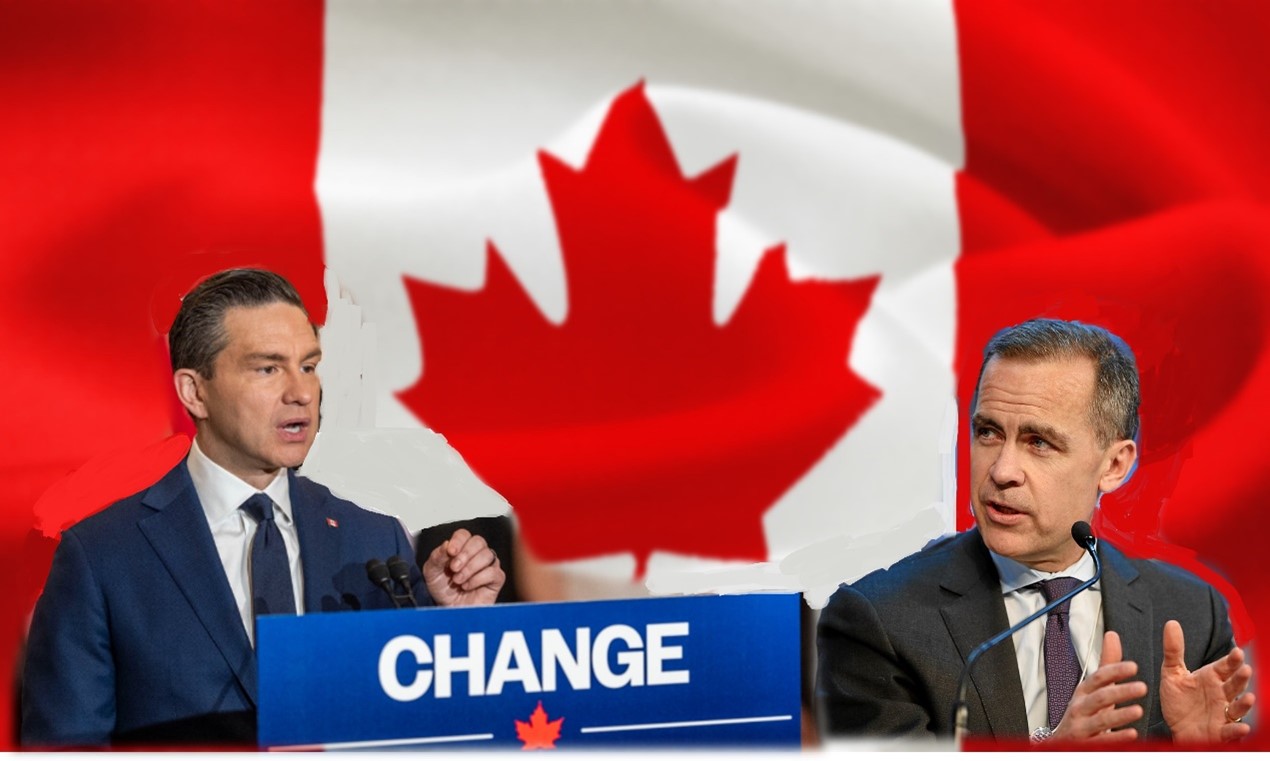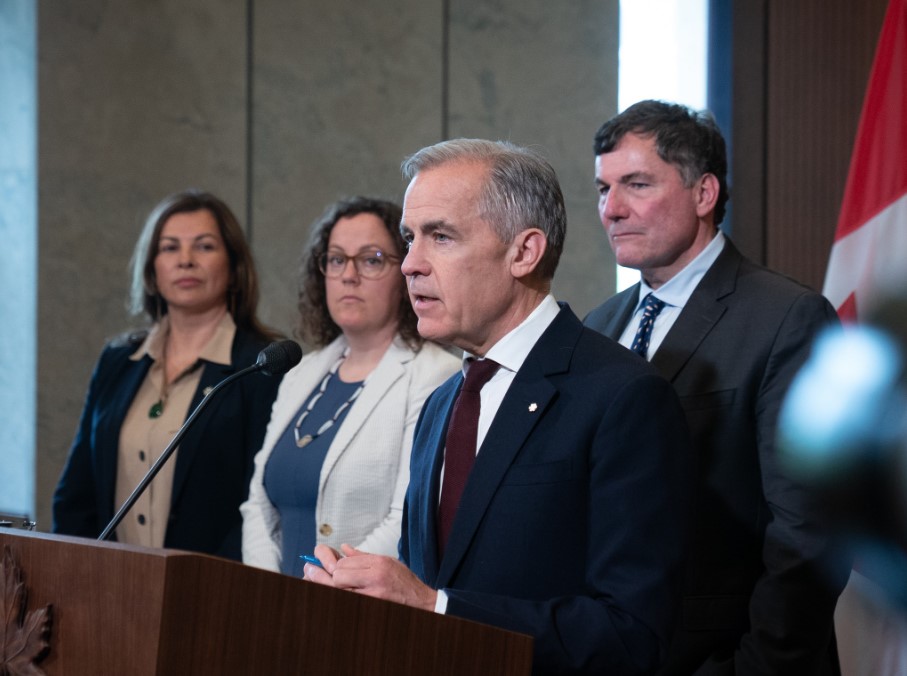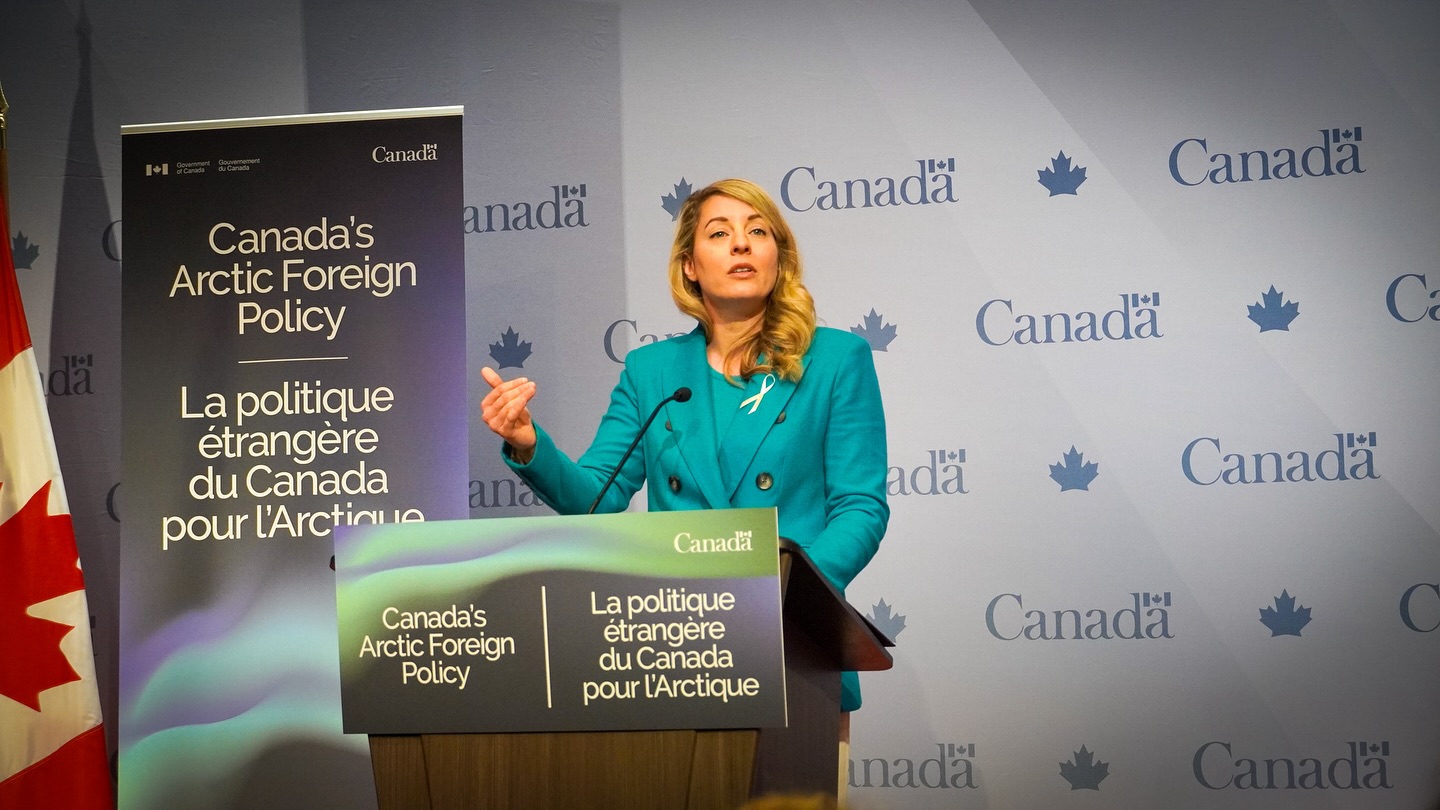Diplomatic Drift? How Canada’s April 2025 Election Could Derail Its Indo-Pacific Ambitions
As Canadians prepare to cast their ballots on April 28, the nation confronts an unprecedented constellation of challenges to its global standing and democratic institutions. Against this tumultuous backdrop, the Indo-Pacific region represents perhaps the most consequential foreign policy arena facing the country. Picture source: Depositphotos.
Prospects & Perspectives No. 23
Diplomatic Drift? How Canada’s April 2025 Election Could Derail Its Indo-Pacific Ambitions
By Stephen R. Nagy
As Canadians prepare to cast their ballots on April 28, the nation confronts an unprecedented constellation of challenges to its global standing and democratic institutions. Externally, President Trump’s America has subjected Canada to punitive tariffs and unpredictable diplomacy, while authoritarian powers like China and Russia have escalated interference operations targeting Canadian sovereignty. Internally, democratic legitimacy has come under scrutiny with Mark Carney — a former central banker who has never served as an elected official — assuming Liberal leadership and the Prime Minister’s office without facing voters until now. Against this tumultuous backdrop, the Indo-Pacific region represents perhaps the most consequential foreign policy arena facing the country. While domestic crises like housing affordability and inflation understandably dominate campaign discourse, Canada’s approach toward China and engagement with regional allies has emerged as a defining dimension of the electoral contest between Carney’s Liberals and Pierre Poilievre’s Conservatives.
Principles Over Prosperity: The continued costly Liberal indulgence in values-based diplomacy
After a very long delay, the Trudeau government’s Indo-Pacific Strategy, unveiled in November 2022, marked Canada’s first comprehensive regional framework. With a five-year, C$2.3 billion commitment, the strategy positioned Canada as a regional player while acknowledging China as “an increasingly disruptive global power” requiring a nuanced approach of selective cooperation alongside stronger security partnerships with democratic allies.
Jonathan Berkshire Miller, director of the Indo-Pacific program at the Macdonald-Laurier Institute, acknowledges that the Liberal strategy marks “significant progress in recognizing the region’s strategic importance,” but faults its implementation as “uneven and occasionally hampered by conflicting priorities within the government itself.” Miller cites the strategy’s delayed rollout after years of policy review as evidence of the Trudeau government’s reluctance to make tough decisions.
The Liberals’ approach prioritizes economic diversification away from China while maintaining working relationships on issues like climate change. Foreign Affairs Minister Mélanie Joly has characterized this as “eyes wide open” diplomacy — a position that attempts to balance commercial interests with security concerns. Their strategy has been hampered by a misguided emphasis on what some critics have called feminist foreign policy and the promotion of gender and sexuality identity politics, ideological priorities that arguably yielded no tangible benefits for Canadian interests or regional stability while complicating relationships with traditional Indo-Pacific partners.
Liberal campaign messaging emphasizes multilateral engagement, highlighting Canada’s participation in the Comprehensive and Progressive Agreement for Trans-Pacific Partnership (CPTPP) and increased naval deployments to the region. Former PM Trudeau positioned himself as an experienced statesman capable of navigating complex regional dynamics, pointing to strengthened relationships with Japan, South Korea, and Southeast Asian countries during his tenure.
This self-assessment was not reflected in how the region saw Canada’s engagement under Trudeau. Many in Asia saw the Trudeau leadership as schizophrenic, self-sabotaging and short-sighted. Their collective concern is that a potential PM Carney would be a Trudeau 2.0 government.
Conservative Vision? A return to national interest-based diplomacy
Poilievre’s Conservatives have articulated a markedly different approach, advocating for a more confrontational stance toward Beijing coupled with deeper economic and security integration with democratic partners. The Conservative platform calls for significantly reduced economic dependence on China, expanded defense spending to meet NATO commitments, and expedited critical mineral development to counter Chinese dominance in supply chains. This strategy acknowledges the complexity of working with the United States under President Trump’s administration, which, despite its unpredictability in bilateral relations, shares Conservative concerns about Chinese economic practices and security threats — creating a potential alignment of interests even amid trade tensions with Canada’s largest trading partner.
Conservatives correctly identify the need for a more robust security posture in the region however, their platform would benefit from greater specificity on how Canada can meaningfully contribute to regional security architecture beyond rhetorical support. This means properly understanding what Canada’s material and non-material capabilities and capacities and properly calibrating Ottawa’s engagement are based on these realities.
The Conservative approach is mixed. On the one hand, it emphasizes values-based diplomacy, with Poilievre pledging to prioritize relationships with democracies while taking a harder line on human rights abuses and economic coercion. His campaign has criticized the Liberals for what he characterizes as “naïve engagement” with Beijing that has resulted in economic vulnerability and compromised sovereignty. On the other hand, it stresses a national interest-based diplomacy focusing on eschewing signature Liberal initiatives such a feminist foreign policy and the advocacy of gender and sexuality identity politics and placing interests on how engagement must bring direct tangible benefits to Canadians.
Kenneth Holland, Jindal Global Law School O.P. Jindal Global University, observes that “Poilievre’s emphasis on economic security resonates with many Canadians who have grown more skeptical of China, but his platform currently lacks the detailed implementation strategy needed to execute such a significant policy shift.”
Conservative messaging highlights Poilievre’s commitment to expanding Canadian LNG exports to Asian allies, arguing this would simultaneously strengthen economic ties with partners like Japan while reducing their dependence on Russian and Middle Eastern energy sources.
Policy Crossroads: Evaluating strategic tradeoffs
The Liberal approach benefits from policy continuity and established diplomatic relationships built over nearly a decade in power. Their Indo-Pacific Strategy provides a foundational framework that has received cautious approval from regional partners. The government has successfully diversified some diplomatic engagements, particularly with South Korea, Japan, and ASEAN countries. Other relationships, however, such as India and China, have been scarred and damaged by mismanagement and naivety. Ottawa has also transformed, quietly and in a nuanced way, its policy to reflect the importance of Taiwan as a global public good.
As Carlo Dade, Director of International Policy at the School of Public Policy at the University of Calgary, argues, “The Liberals’ implementation has been tepid and inconsistent. Despite recognizing China as a strategic competitor, they’ve struggled to translate this recognition into coherent policy, often appearing to compartmentalize trade and security concerns in ways that create confusion among allies.”
Philippe Lagassé, associate professor and Barton chair at the Norman Paterson School of International Affairs, Carleton University, and Justin Massie, professor and head of the department of political science at the Université du Québec à Montréal and co-director of the Network for Strategic Analysis, amongst others, have criticized the Liberals for insufficient defense investments to support their regional commitments. Naval deployments remain limited by capacity constraints, and military spending continues to fall short of NATO targets despite increased regional tensions.
The Conservative approach under Poilievre offers greater policy clarity on China but faces implementation challenges. Their emphasis on decoupling from Chinese supply chains aligns with American and Australian approaches but would require significant economic adjustments that the party has yet to fully address in campaign materials.
“Poilievre correctly identifies critical vulnerabilities in Canada’s economic relationship with China,” Berkshire Miller of MLI notes, “but the Conservative platform would benefit from more detailed transition plans for sectors heavily dependent on Chinese markets, particularly agriculture and natural resources.”
The Conservatives’ schizophrenic emphasis on values-based diplomacy and a national interests-based resonates with shifts in public opinion but potentially underestimates the complexity of regional relationships where pragmatic engagement often coexists with value differences.
Charting Canada’s Future: A Strategic Roadmap
Canada faces the critical imperative of calibrating its strategic posture within a transformed Indo-Pacific order characterized by Chinese economic vulnerabilities, India's ascendant regional influence, and intensified great power competition. Ottawa must simultaneously mitigate economic exposure to protectionist U.S. trade measures while articulating a coherent security position regarding escalating maritime tensions in the Taiwan Strait and South China Sea. This strategic balancing act—preserving continental economic integration while establishing credible Indo-Pacific security partnerships—represents the paramount foreign policy challenge confronting Canadian policymakers in the current electoral context.
Regardless of which party forms a new government, Canada faces structural constraints in the Indo-Pacific. Its military capabilities remain limited relative to regional actors, and its economic significance has declined relative to middle powers like Australia and South Korea.
Moreover, domestic factors will inevitably shape either party’s approach. In short, Canadian policy toward the Indo-Pacific is intrinsically linked to broader questions about economic security, energy transition, and defense spending — all issues where significant domestic constituencies have competing interests.
Looking Forward
As Canadians prepare to vote, the foreign policy differences between parties reflect deeper questions about Canada’s role in a changing world order. The Liberal approach prioritizes flexible engagement and multilateralism but has delivered mixed results. The Conservative vision offers greater clarity on China but raises questions about implementation and broader regional relationships.
The next government will need to move beyond rhetorical commitments to substantive action. his means sustained budget allocations, diplomatic presence, and consistent messaging across government departments — areas where both parties’ platforms currently leave questions unanswered.
The election may determine not just Canada’s approach to the Indo-Pacific but its broader positioning in an increasingly complex international environment where economic and security concerns have become inextricably linked. Canada’ next government will face stark choices about priorities and resources in the Indo-Pacific that will reverberate through its international relationships for years to come.
(Dr. Stephen Nagy, Professor at the International Christian University, Tokyo; Visiting Fellow with the Japan Institute for International Affairs (JIIA); Director of policy studies for the Yokosuka Council of Asia Pacific Studies (YCAPS).)




